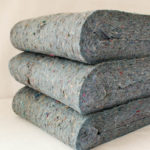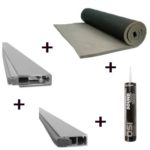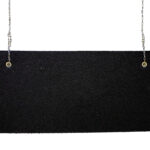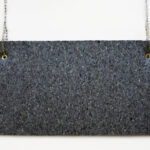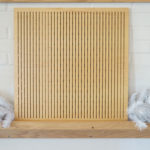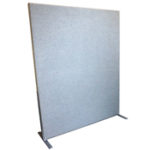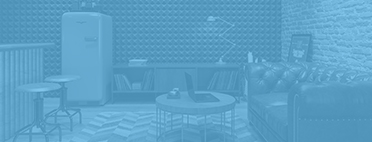
Common Acoustic Concerns in Interview Rooms
An interview room needs to have three critical acoustic characteristics. It should produce crisp, clear voice recordings, keep private discussions within the room, and protect interviewees from distracting outside noises. To create the optimal interview room setup, you must address the following audio issues.
1. Outside Noise Interference
Traffic noise, the humming of the air conditioner, and the chatter of people in the hallway can disrupt the stillness of your interview room. Unwanted sound interference, especially overheard conversations, can prove immensely distracting to the parties having a discussion. It can also compromise the quality of audio recordings and leave you with unintelligible or unusable quotes.
2. Interview Room Privacy
The best interview rooms prevent outside noise infiltration while keeping whatever is said within the room. Interviews can range from light-hearted to deeply personal and even confidential. Therefore, your interview room’s design and sound absorption treatment should let you and your guests talk freely and openly.
3. Reverberation
Even without external noise disruptions, voice recordings can still be compromised by an untreated, smooth wall or a lofty ceiling. When sound waves reflect off flat surfaces, they bounce around, repeating and overlapping, creating reverberation. This reverberation produces a drawn-out echoic sound that muddies speech, making it harder to hear your interviewee’s words. People in the room will experience this reverberation, and it will affect audio recordings, too.
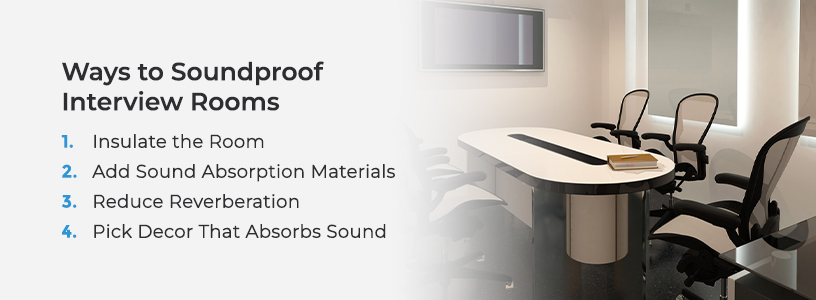
Ways to Soundproof Interview Rooms
Luckily, sound treatment technology offers a solution to all three of these soundproofing concerns. With the right equipment, you can optimize your interview room to perform brilliantly as a recording space, a private discussion nook and a silent, blank canvas for voices to paint. Take soundproofing by the horns with these four best practices.
1. Insulate the Room
Soundproofing insulation performs several duties in an interview room, including regulating room temperature. The most important function it carries out, however, is noise cancellation. Measuring around 3 inches thick, soundproofing insulation can be applied to the walls or the ceiling. Just ensure you purchase insulation made with recycled, non-irritating fibers with the right density for the job.
Ensure all gaps and openings are tightly sealed. You can also use door sweeps and perimeter seals to block the space between the bottom of the door and the floor. These sound-blocking door accessories often come as part of cost-effective door soundproofing kits.
If you have an air conditioner inside the interview room that stays on during interviews, it will likely disturb the silence unless it is an exceptionally quiet, new or well-maintained model. Consider using a soundproof blanket . Your AC manufacturer can advise you on what size blanket your unit requires.
2. Add Sound Absorption Materials
Acoustic panels are the gold standard in sound absorption technology and come in various materials, including acoustic foam, perforated wood and mineral wool. Of all the options, foam acoustic panels are lightweight and convenient. Foam acoustic panels are great at absorbing mid- to high-frequency soundwaves, so they are a great option for an interview room setting.
You can also choose acoustic art panels for a more aesthetic look. The panels will enhance your existing decor and can help improve the interview quality.
Then there are hanging baffles. They are essentially just acoustic panels hung from ceilings on chains. Soundwaves encounter the sound-absorbing material of the baffle instead of reaching the perimeter. Baffles are best used in larger rooms and should be installed a few inches away from the wall they are shielding. Some baffles are made from ridged foam that reduces echoes while diffusing the sound.
3. Reduce Reverberation
To reduce reverberation, you can use textured acoustic panels to diffuse sound throughout the room. One aesthetically pleasing option is perforated wooden acoustic panels, which have patterns of notches and grooves instead of fabric.
Acoustic panels can be wall-mounted or free-standing, and the best choice depends on how permanent a solution you are looking for in your interview room. Acoustic partition panels are free-standing panels that can be moved around. This portability lets you enhance the acoustic quality of several rooms by adjusting the panels as needed.
4. Pick Decor That Absorbs Sound
When decorating your interview room, keep in mind that smooth, flat surfaces can cause acoustic issues. Choose cork or carpeting for your floor instead of tiles, laminate, or hardwood, or lay a large rug down to absorb the sound. Similarly, go for thick, textured curtains instead of blinds to reduce unwanted echoes and muffled voices.
Tips for Choosing High-Quality Soundproofing Materials
With all the products and brands on the market today, deciding which soundproofing solutions are right for your needs can be like finding a needle in a haystack. Follow these two tricks of the trade to ensure you get the quality of service and caliber from the products that you purchase.
1. Buy Products With High NRC Ratings
Investing in exceptional-quality sound absorption and diffusion products is essential if you want a truly soundproof interview room. A system of measurement used in the soundproofing industry helps customers know exactly how capable each product is. That measurement is the Noise Reduction Coefficient (NRC). Pick products with high NRC ratings to ensure you are getting value for your money.
2. Measure Your Interview Room’s STC
Interview room soundproofing must also take into account Sound Transmission Class (STC) ratings. This measurement refers to how much sound your walls are currently letting through. As you improve the acoustic treatment of your room, its STC will rise. The closer to 65 your STC rating, the better your sound insulation is working.
3. Choose a Soundproofing Provider Dedicated to Excellence
When it comes to soundproofing, it is crucial to have a team of experts you can rely on and trust to advise you. Yes, product quality is of the utmost importance, but working with a team of experienced, highly qualified professionals will be the difference between “meh” soundproofing and an acoustically optimized space that will go beyond your expectations.
Request a Free Acoustic Analysis or Shop Products Online
At Soundproof Cow, we guide our customers through their soundproofing journey step by step, from providing expert consultation to a wide range of top-quality products. Whether you need to reduce reverberation, insulate the space or give your room the full acoustic treatment, we have you and your room covered. Get your free acoustic analysis today, and let us help you “calf” out a name for yourself as an expert interviewer.





